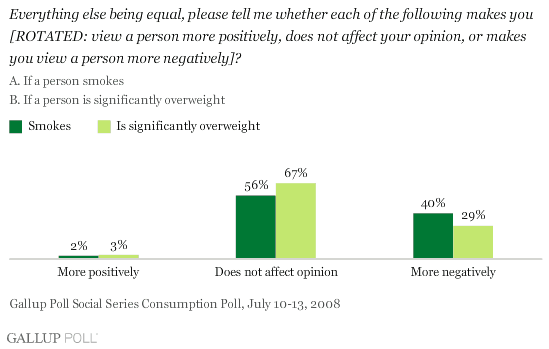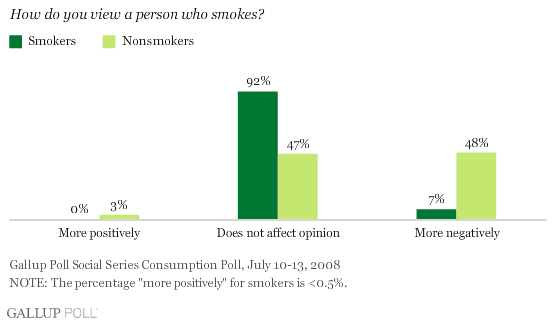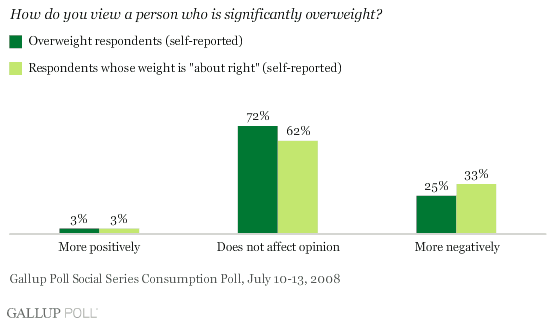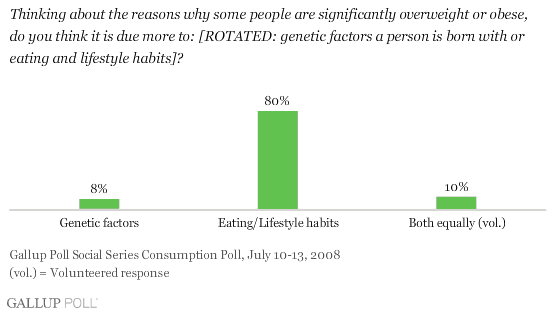PRINCETON, NJ -- The majority of Americans say the fact that a person smokes or is significantly overweight does not affect their opinion of that person, although 40% say they have a more negative opinion of smokers, and 29% have a more negative opinion of someone who is significantly overweight.

The impact of a person's habits or external appearance on his or her image is a significant factor in today's society, given that groups of people claim they are unfairly discriminated against because of these types of personal characteristics. Smokers have often complained about societal discrimination, and, in recent years, some U.S. states and municipalities have included or are considering including weight in broad laws banning discrimination on the basis of such fundamental personal characteristics as race, gender, or age.
The July ���۴�ýPoll Social Series Consumption Poll probed Americans' images of people who smoke and of those who are significantly overweight. The interpretation of the data (presented in the accompanying graph) depends on one's vantage point. Fifty-six percent of Americans say the fact that a person smokes makes no difference in their opinion of that person, and an even higher 67% say the fact that a person is significantly overweight doesn't affect their opinion. Still, that leaves substantial minorities who say these characteristics do make them think more negatively of a person.
Perhaps not surprisingly, most smokers themselves say the fact that a person smokes doesn't affect their opinion of that person. But almost half of nonsmokers say they feel more negatively about a person if that person smokes. This suggests that smokers should realize that one out of two nonsmokers they come in contact with will think less of them simply because of their tobacco habit.

On the other hand, there is more self-flagellation among those who say they are overweight (42% of respondents in the July survey). Twenty-five percent of these self-described overweight adults say they think more negatively of a person who is significantly overweight. Among those who say their weight is "about right," 33% hold negative perceptions of the significantly overweight.

Despite the fact that a majority of Americans do not think more negatively of those who are significantly overweight, the poll finds most Americans believing that being overweight is a result of personal lifestyle choices rather than representing a biological or genetic factor.

This does not vary by self-reported weight status. Eighty percent of both those who describe themselves as overweight and those who describe their weight as about right say being significantly overweight is the result of eating and lifestyle habits rather than genetic factors.
Survey Methods
Results are based on telephone interviews with 1,016 national adults, aged 18 and older, conducted July 10-13, 2008. For results based on the total sample of national adults, one can say with 95% confidence that the maximum margin of sampling error is ±3 percentage points.
Interviews are conducted with respondents on land-line telephones (for respondents with a land-line telephone) and cellular phones (for respondents who are cell-phone only).
In addition to sampling error, question wording and practical difficulties in conducting surveys can introduce error or bias into the findings of public opinion polls.
To provide feedback or suggestions about how to improve Gallup.com, please e-mail feedback@gallup.com.
